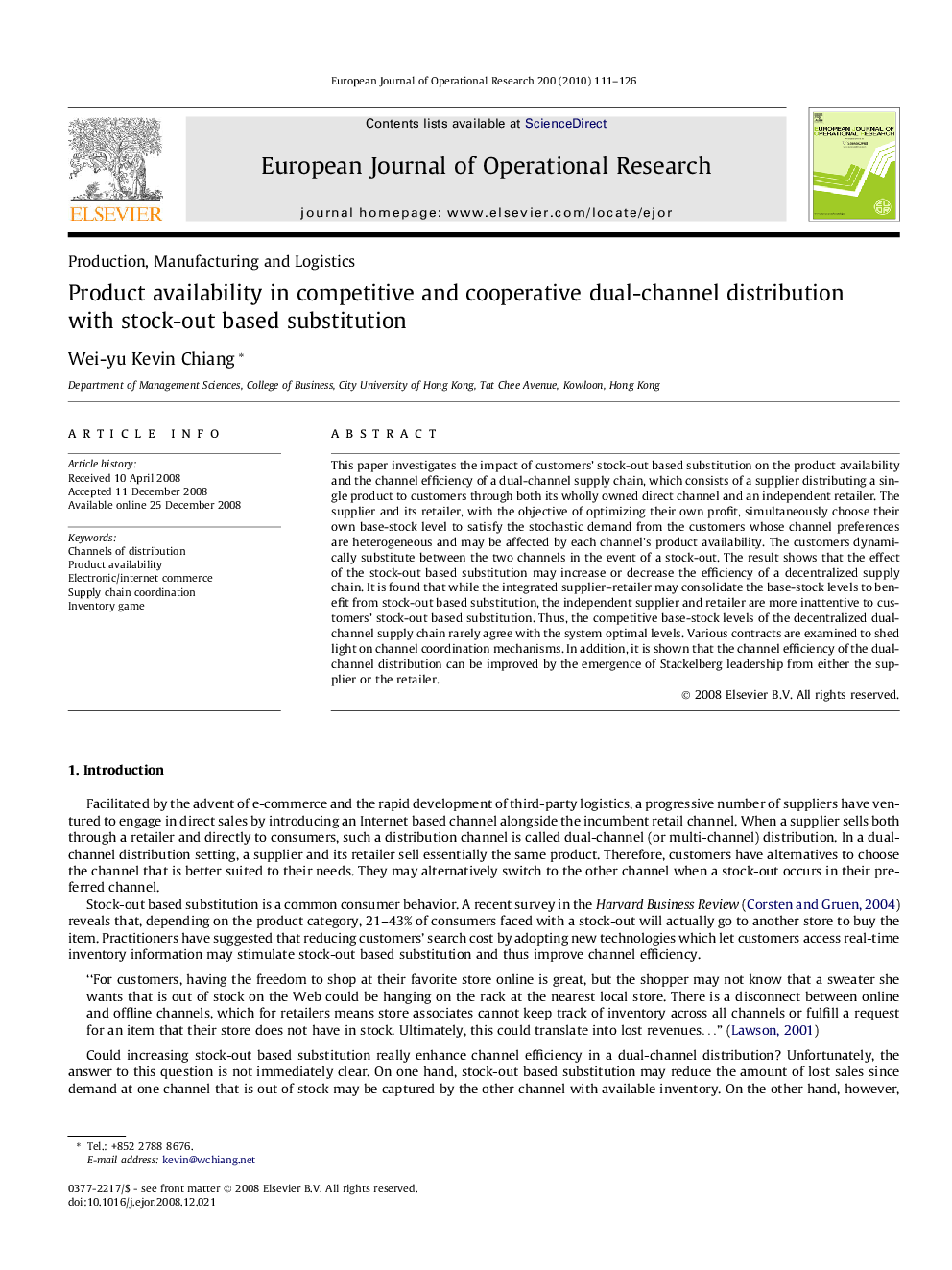| Article ID | Journal | Published Year | Pages | File Type |
|---|---|---|---|---|
| 480857 | European Journal of Operational Research | 2010 | 16 Pages |
This paper investigates the impact of customers’ stock-out based substitution on the product availability and the channel efficiency of a dual-channel supply chain, which consists of a supplier distributing a single product to customers through both its wholly owned direct channel and an independent retailer. The supplier and its retailer, with the objective of optimizing their own profit, simultaneously choose their own base-stock level to satisfy the stochastic demand from the customers whose channel preferences are heterogeneous and may be affected by each channel’s product availability. The customers dynamically substitute between the two channels in the event of a stock-out. The result shows that the effect of the stock-out based substitution may increase or decrease the efficiency of a decentralized supply chain. It is found that while the integrated supplier–retailer may consolidate the base-stock levels to benefit from stock-out based substitution, the independent supplier and retailer are more inattentive to customers’ stock-out based substitution. Thus, the competitive base-stock levels of the decentralized dual-channel supply chain rarely agree with the system optimal levels. Various contracts are examined to shed light on channel coordination mechanisms. In addition, it is shown that the channel efficiency of the dual-channel distribution can be improved by the emergence of Stackelberg leadership from either the supplier or the retailer.
